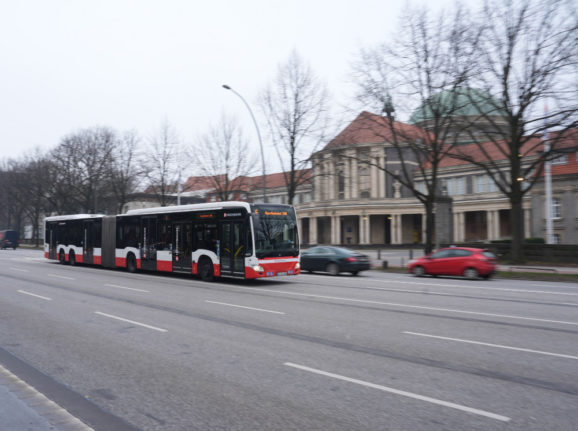On Thursday, the Bundestag voted through a 5.75 percent increase in Bafög – Germany’s grant and loan system for students – alongside an increase in both the housing and the childcare allowance for students.
From the start of the winter semester, the basic Bafög entitlement will increase to €452 per month and the housing cost supplement for students who don’t live with their parents will increase from €325 to €360.
The maximum support rate including the housing cost supplement will thus rise from €861 to €934 – an increase of more than eight percent.
Bafög recipients who don’t live with their parents will also receive a one-off subsidy of €230 to help with rising energy bills. According to official statistics, about three quarters of Bafög recipients live away from home.
READ ALSO: EXPLAINED: Can foreigners apply for student finance in Germany?
As well as raising grants, the government is also widening the eligibility criteria so that more students and trainees will be eligible for full Bafög payments.
Previously, grants for students whose married parents earned more than €2,000 a month were reduced to factor in their parent’s income. From October, however, payments will only be reduced for people whose parents earn a combined income of €2,400 or more.
Students under the age of 30 will also be able to claim the full amount of Bafög if they have less than €15,000 in assets, while students over the age of 30 can hold assets of up to €45,000.
“The previous support system excluded too many people,” said Federal Education Minister Betting Stark-Watzinger (FDP). “We are reversing this trend.”
There are also plans for an online application system to make it easier to apply for support in future.
‘A drop in the ocean’
The traffic-light coalition had originally planned a Bafög increase of five percent but later revised this to six percent to compensate for the rising cost of living.
However, student representatives and the German Student Union still say the current increase is too low.
“Unfortunately, this is only a drop in the ocean,” said Kristof Becker, Federal Youth Secretary of the DGB Youth. “In view of the current dramatic inflation rate, you don’t have to be a maths genius to see that the increase is not enough.”
Speaking in parliament ahead of the vote, the Left Party politician Nicole Gohlke said the changes were “purely cosmetic” and accused the government of being out of touch.

“Inflation will eat up the Bafög increase entirely, there’s nothing left over,” he said.
However, the government pointed out that an additional €2 billion would be made available for Bafög reforms in the coming years. The current law is only the first step, they argued.
The bill to raise Bafög and increase the number of eligible students was passed with the combined votes of the three traffic-light coalition parties and the Left Party. The opposition CDU/CSU parties and the far-right AfD voted against the reform.
“Education is an opportunity, but not a state-guaranteed human right for everyone,” AfD education policy spokesperson Götz Frömming said.
READ ALSO: Essential German words to know as a student in Germany
The new Bafög rates and rules:
Bafög grants: The basic Bafög rate for students will be raised from €427 to €452 per month. Those who no longer live with their parents can also receive €360 instead of the previous €325 for rent. Students who have their own health and care insurance and no longer live with their parents will receive higher supplements.
Allowances: In order to increase the number of Bafög recipients, €2,415 of monthly parental income will be exempt from grant calculations. Previously, just €2,000 was exempt. Other allowances will also be increased, for example for married people and students with children.
Protected assets: Those under 30 can hold up to €15,000 in assets, and those over 30 can hold up to €45,000 in assets, without this being counted towards Bafög. Previously, all assets over €8,200 were counted.
Part-time jobs: Students should be able to earn €330 in a part-time job without this affecting the Bafög grant, up from €290.
Childcare allowance: Students with children will be able to receive a childcare allowance of €160 per month instead of the previous €150. The money is intended for babysitters, for example, when classes are held in the evenings.
Age limit: In future, students who want to take up a course of study later on will also be able to receive Bafög. The age limit will be raised from 30 to 45.
Pupils and trainees: Pupils and trainees who live away from home can in future receive €632 instead of the previous €585.
READ ALSO: Germany boosts funding for EU’s Erasmus student exchange programme




 Please whitelist us to continue reading.
Please whitelist us to continue reading.
Member comments